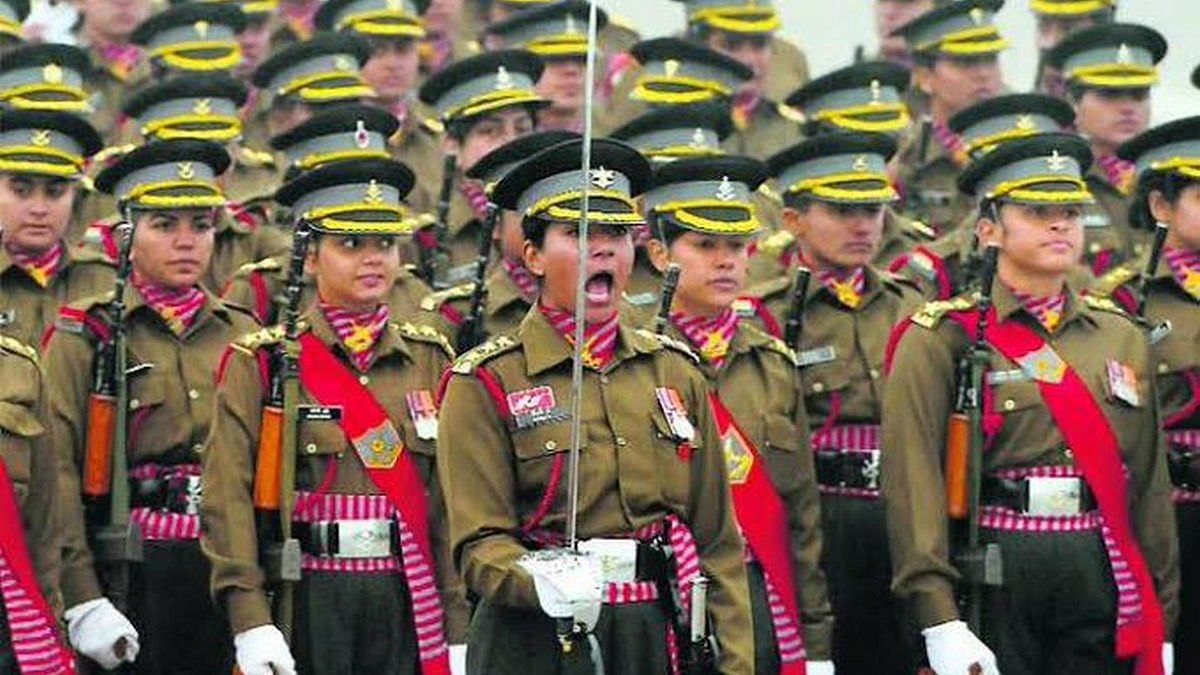Now they have suddenly remembered menstruation and biological differences when army told them to shape up if they want PC!
Criterion to screen women for permanent commission unfair, Army officers tell SC
Women officers have filed a plea challenging the General Instructions issued by the Indian Army to screen them for permanent commission.
21 October, 2020 7:19 pm IST
Women officers have filed a plea challenging the General Instructions issued by the Indian Army to screen them for permanent commission.

theprint.in
New Delhi: Women officers, who fought a decade-long court battle for securing permanent commission (PC) in the Indian Army, are now engaged in yet another litigation.
This time, they have challenged the General Instructions (GI) issued by the Indian Army on 1 August in compliance with the Supreme Court’s 17
February judgment granting PC to its women officers.
The GI refers to the set of instructions to screen women officers for PC in the Indian Army.
In their fresh petition last week, the women officers have alleged that the GI sets out a general medical criterion for all women officers without considering the physiological and biological changes that may have occurred in a few of them during their service period.
They have also alleged that the GI does not mention the promotional avenues for women officers once they become permanent and do not offer them a time-scale promotion benefit, which is available to male officers who have served the Army for more than 26 years.
The landmark February ruling had also directed the central government to grant promotion and other consequential benefits to women officers. But the petitioners have alleged that the GI indirectly traps them into “technical and procedural formalities and consequential denial of their rights”.
Advocate Chitrangada Rastravara, who represented women officers in the top court last week, told that the “purported compliance” of the SC judgment, almost five months after it was delivered, is “vitiated with arbitrariness, unfairness and unreasonableness”.
“This is a piecemeal approach by the Army. It has failed to determine a fair, rational road map and a well-reasoned policy for women officers, pushing them to approach the court again to assert their rights. Time is extremely crucial for these women officers who have already lost 15 years (time spent in courts). Instead of compensating them for their loss, the Army is penalising them further with such arbitrary instructions,” Rastrava said.
‘Subjecting all women to common deadline irrational’
The women officers have submitted that the medical criterion laid down in the GI is inconsistent with the basic tenets of Article 14 of the Constitution.
Women officers who are being considered for permanent commission fall within the age bracket of 35-50 years. But the medical parameters incorporated in the GI to evaluate them are the same as used for male officers aged 25-30 years, who are given the option of a permanent commission in their 5th and 10th year of service.
“This kind of prejudicial determination will lead to denial of PC to those officers who are equally qualified as their male counterparts and were kept in abeyance only for want of an opportunity of PC at the relevant time in their service career,” the officers claimed.
They also submitted that the medical parameters do not recognise physiological changes as a part of the aging process in the case of women officers. For instance, women officers above 45 years (approaching menopause) as well as unmarried women officers have been asked to undergo pregnancy test, overlooking their age and marital status.
The medical category of a woman in the Army is lowered when a pregnancy is confirmed and she is protected from strenuous duties. In the GI for women, a common deadline has been laid for all women officers, including those in the low medical category, to upgrade themselves to ‘
Shape-1‘ category for the grant of PC, said the petitioners.
Subjecting all women to a common deadline is irrational and unjust, they said.
Lack of promotion policy
The petitioners have also highlighted the absence of a policy for promotion of women officers who will be approved by the Permanent Commission Board.
The existing parameters on which an officer is assessed for the purposes of promotion includes attending certain courses and appointments. However, since women officers were not eligible for PC earlier, they never got an opportunity to attend these courses. And, even if they were given an opportunity to attend those, it wasn’t for the purpose of evaluation by the promotion board, the officers said.
The women officers argued that they cannot be evaluated for promotion on the basis of parameters fixed for their male counterparts. This lack of promotion policy is likely to become another hurdle or roadblock for the women officers, unless fresh rules are prepared by the Army, they said.
“The conduct of the respondent suggests that they are playing psychological warfare with these women officers to avoid every possibility of granting them the benefits of permanent commission, promotion and consequential benefits, which is in clear violation of the order,” the petition said.


